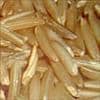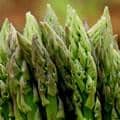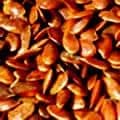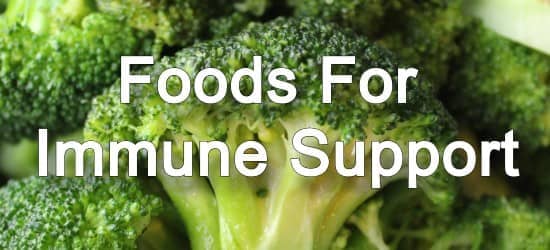12 Foods for Better Gut Health

Your gut has a massive impact on your health and well-being way beyond simply digesting your food. The relationship between the gut and general health is complex, but much of it relates to the bacteria living there. Trillions of bacteria inhabiting the digestive tract, collectively known as the "microbiome", comprise a mixture of beneficial, neutral, and potentially harmful bacteria.
The balance of the different varieties of bacteria has far-reaching effects on many aspects of health. A favorable balance of gut bacteria means you are more likely to have a strong immune system, be at a healthy weight, have healthy skin, and have good mental well-being. (1,2,3) Imbalances in gut bacteria, on the other hand, are linked to various health problems including obesity, anxiety, irritable bowel syndrome, food intolerances, allergies, asthma, eczema, and infections.
The basis of a gut-friendly diet starts with a balanced and varied high-fiber diet. Foods that are good for your gut include yogurt, kimchi, sauerkraut, whole grains, papaya, pineapple, and more. Scroll down to view the full list of foods that promote gut health.
List of Foods For Better Gut Health
-
 1. Live Yogurt + Add
Live yogurt contains probiotics, live microorganisms that have beneficial health effects (4,5). They are often referred to as "friendly" bacteria, as they help keep the gut healthy. They occur naturally in the body, but it may be possible to increase the levels of these beneficial bacteria through foods and supplements. Probiotics help to balance the good and bad bacteria in the gut, by pushing the bad guys out. Choose natural, unsweetened (preferably organic) yogurt to avoid added sugars and sweeteners, and try coconut or soy yogurt if dairy is a problem.
1. Live Yogurt + Add
Live yogurt contains probiotics, live microorganisms that have beneficial health effects (4,5). They are often referred to as "friendly" bacteria, as they help keep the gut healthy. They occur naturally in the body, but it may be possible to increase the levels of these beneficial bacteria through foods and supplements. Probiotics help to balance the good and bad bacteria in the gut, by pushing the bad guys out. Choose natural, unsweetened (preferably organic) yogurt to avoid added sugars and sweeteners, and try coconut or soy yogurt if dairy is a problem.
Nutrition Facts for Non Fat Yogurt. -
 2. Fermented Foods + Add
Fermented foods such as sauerkraut, kimchi, kombucha, tempeh, miso, and natto are also great sources of probiotics. Probiotics improve digestion in general and may help alleviate common digestive problems such as IBS, constipation, and bloating. (6) Studies show probiotics reduce abdominal bloating and flatulence in people with IBS and may also help relieve IBS pain. (7)
2. Fermented Foods + Add
Fermented foods such as sauerkraut, kimchi, kombucha, tempeh, miso, and natto are also great sources of probiotics. Probiotics improve digestion in general and may help alleviate common digestive problems such as IBS, constipation, and bloating. (6) Studies show probiotics reduce abdominal bloating and flatulence in people with IBS and may also help relieve IBS pain. (7)
Nutrition Facts for Kimchi. -
 3. Whole Grains + Add
Whole grains are a top source of dietary fiber, which is an essential element for a healthy gut. Western diets are typically low in fiber and most people would benefit from increasing their intake. Swapping refined grains (white bread, white rice etc.) for whole grains is a great way to increase your fiber intake. A high-fiber diet benefits digestion, helps prevent constipation, and reduces the risk of many diseases of the digestive system. (8,9). Fiber also favorably influences the balance of gut bacteria. (10)
3. Whole Grains + Add
Whole grains are a top source of dietary fiber, which is an essential element for a healthy gut. Western diets are typically low in fiber and most people would benefit from increasing their intake. Swapping refined grains (white bread, white rice etc.) for whole grains is a great way to increase your fiber intake. A high-fiber diet benefits digestion, helps prevent constipation, and reduces the risk of many diseases of the digestive system. (8,9). Fiber also favorably influences the balance of gut bacteria. (10)
Nutrition Facts for Cooked Brown Rice. -
4. Papaya and Pineapple + Add
Papaya and pineapple contain natural fruit enzymes, which may help the body digest fats and proteins. These enzymes may help relieve mild digestive symptoms such as gas and bloating and can have a gentle laxative effect. (11,12) Fruits in general are another top source of dietary fiber to help keep the digestive system healthy.
Nutrition Facts for Papaya. -
 5. Asparagus + Add
Asparagus is a good source of prebiotics to feed the beneficial bacteria in the gut. Prebiotics are carbohydrates or fiber that reach the colon relatively unchanged, as the human body cannot digest them. Here they feed the friendly bacteria, encouraging them to grow and thrive and their numbers, therefore, increase and outnumber the bad guys. Specifically, these kinds of prebiotics have been shown in studies to increase a beneficial bacterial strain called bifidobacteria (13). Other good prebiotic food sources are chicory, artichokes, onions, garlic, leeks, and bananas.
5. Asparagus + Add
Asparagus is a good source of prebiotics to feed the beneficial bacteria in the gut. Prebiotics are carbohydrates or fiber that reach the colon relatively unchanged, as the human body cannot digest them. Here they feed the friendly bacteria, encouraging them to grow and thrive and their numbers, therefore, increase and outnumber the bad guys. Specifically, these kinds of prebiotics have been shown in studies to increase a beneficial bacterial strain called bifidobacteria (13). Other good prebiotic food sources are chicory, artichokes, onions, garlic, leeks, and bananas.
Nutrition Facts for Cooked Asparagus (Boiled, Drained). -
 6. Ginger + Add
Ginger has been traditionally used as a digestive aid for centuries. It is a digestive tonic, which may be helpful for indigestion. Some research shows that ginger may help to relieve spasms in the digestive tract and reduce inflammation. It also has anti-nausea properties and has been shown to enhance the natural movements of the intestines that aid digestion (14).
6. Ginger + Add
Ginger has been traditionally used as a digestive aid for centuries. It is a digestive tonic, which may be helpful for indigestion. Some research shows that ginger may help to relieve spasms in the digestive tract and reduce inflammation. It also has anti-nausea properties and has been shown to enhance the natural movements of the intestines that aid digestion (14).
Nutrition Facts for Raw Ginger (Fresh). -
 7. Turmeric + Add
Studies show that turmeric relieves indigestion (15) and reduces the symptoms of IBS. (16,17) Turmeric also has anti-inflammatory effects, which help to protect the gut against problems involving inflammation, such as inflammation of the esophagus caused by reflux. (18) There is also preliminary evidence that it may be helpful for people with inflammatory bowel disease, although more research is needed to be sure. (19,20)
7. Turmeric + Add
Studies show that turmeric relieves indigestion (15) and reduces the symptoms of IBS. (16,17) Turmeric also has anti-inflammatory effects, which help to protect the gut against problems involving inflammation, such as inflammation of the esophagus caused by reflux. (18) There is also preliminary evidence that it may be helpful for people with inflammatory bowel disease, although more research is needed to be sure. (19,20)
Nutrition Facts for Ground Turmeric. -
 8. Flax Seeds + Add
Flaxseeds (Linseeds) have gentle laxative effects and can help relieve constipation. (21) They are a "bulk forming" laxative; this is a type of natural laxative from plants with a high fiber and mucilage content that expand when combined with water. This increase in volume in the bowel stimulates a reflex muscular contraction and a bowel movement. One tablespoon of either whole or ground seeds dissolved in a full glass of water once or twice a day may help to improve gut function and relieve constipation. There is also some evidence that flaxseed may have favorable effects on the microbiome. (22)
8. Flax Seeds + Add
Flaxseeds (Linseeds) have gentle laxative effects and can help relieve constipation. (21) They are a "bulk forming" laxative; this is a type of natural laxative from plants with a high fiber and mucilage content that expand when combined with water. This increase in volume in the bowel stimulates a reflex muscular contraction and a bowel movement. One tablespoon of either whole or ground seeds dissolved in a full glass of water once or twice a day may help to improve gut function and relieve constipation. There is also some evidence that flaxseed may have favorable effects on the microbiome. (22)
Nutrition Facts for Flax Seeds. -
 9. Peppermint Tea + Add
Both peppermint leaf and peppermint oil have a long history of use for digestive disorders. (23) Studies have found that peppermint can reduce symptoms of indigestion such as gas and stomach cramps (24). It seems to work by relaxing the muscles of the gut (23) and helping gas to dissipate. Peppermint oil has also been shown in studies to reduce symptoms of IBS. (25,26) Tea made from fresh peppermint leaves likely contains more active ingredients than tea made from a tea bag.
9. Peppermint Tea + Add
Both peppermint leaf and peppermint oil have a long history of use for digestive disorders. (23) Studies have found that peppermint can reduce symptoms of indigestion such as gas and stomach cramps (24). It seems to work by relaxing the muscles of the gut (23) and helping gas to dissipate. Peppermint oil has also been shown in studies to reduce symptoms of IBS. (25,26) Tea made from fresh peppermint leaves likely contains more active ingredients than tea made from a tea bag.
Nutrition Facts for Fresh Peppermint. -
 10. Kiwi Fruit + Add
Kiwi Fruit contains a natural fruit enzyme called actinidin that helps the body digest proteins and can therefore act as a digestive aid. (27) One study found that eating three gold kiwi per day relieved constipation, abdominal discomfort and indigestion. (28) Another demonstrated that eating the same three gold kiwi per day led to improvements in IBS symptoms. (29) Kiwi fruit have also been shown to favorably alter the composition of intestinal bacteria and kiwi fiber has the ability to retain water, which is beneficial for bowel movements. (30)
10. Kiwi Fruit + Add
Kiwi Fruit contains a natural fruit enzyme called actinidin that helps the body digest proteins and can therefore act as a digestive aid. (27) One study found that eating three gold kiwi per day relieved constipation, abdominal discomfort and indigestion. (28) Another demonstrated that eating the same three gold kiwi per day led to improvements in IBS symptoms. (29) Kiwi fruit have also been shown to favorably alter the composition of intestinal bacteria and kiwi fiber has the ability to retain water, which is beneficial for bowel movements. (30)
Nutrition Facts for Kiwifruit. -
 11. Broccoli + Add
Broccoli and vegetables in general are another top source of dietary fiber and should be eaten in plentiful amounts for optimum digestive health. Regular consumption of broccoli has been shown in studies to favorably alter the composition of gut bacteria. (31,32) Broccoli and other cruciferous vegetables (cabbage, cauliflower, kale, Brussels sprouts, collards etc.) contain substances called glucosinates, which are natural plant compounds that gut bacteria can metabolize, producing beneficial effects.
11. Broccoli + Add
Broccoli and vegetables in general are another top source of dietary fiber and should be eaten in plentiful amounts for optimum digestive health. Regular consumption of broccoli has been shown in studies to favorably alter the composition of gut bacteria. (31,32) Broccoli and other cruciferous vegetables (cabbage, cauliflower, kale, Brussels sprouts, collards etc.) contain substances called glucosinates, which are natural plant compounds that gut bacteria can metabolize, producing beneficial effects.
Nutrition Facts for Cooked Broccoli (Boiled, Drained). -
 12. Water + Add
Water is essential for keeping things moving through the gut. Plenty of water in combination with fiber reduces transit time (time taken for food to pass through the digestive tract). Shorter transit times tend to result in fewer harmful byproducts being produced in the digestive system and a healthier gut environment overall. When foods takes longer to pass through the digestive tract, certain gut bacteria have more time to form harmful substances as they break down their food (33) and this increases the risk of digestive and other health problems.
12. Water + Add
Water is essential for keeping things moving through the gut. Plenty of water in combination with fiber reduces transit time (time taken for food to pass through the digestive tract). Shorter transit times tend to result in fewer harmful byproducts being produced in the digestive system and a healthier gut environment overall. When foods takes longer to pass through the digestive tract, certain gut bacteria have more time to form harmful substances as they break down their food (33) and this increases the risk of digestive and other health problems.
Nutrition Facts for Tap Water.
Tips for a Healthy Gut
- Limit consumption of added sugar, refined carbohydrates, processed foods and meat, which can all encourage the growth of harmful bacteria.
- Manage stress, as prolonged stress hampers digestion and can alter the balance of gut bacteria. Take positive steps to manage stress, such as meditation, eating foods that reduce stress, yoga, or walking in nature.
- Physical activity reduces transit time, which is the time taken for food to pass through the digestive tract, keeping the gut healthy and helping prevent constipation.
- Eating more slowly gives more time for the process of chewing and the enzymes in your saliva to begin the process of breaking down your food. It also decreases the chances that you'll overeat, by giving your body time to sense the food that you've eaten and secrete hormones that signal that you're full.
- Avoid probiotic shots, drinks, and flavored yogurts, as these are generally high in added sugars and often contain artificial flavorings and sweeteners. Instead, opt for the natural probiotic foods listed above.
Related
Data Sources and References
- Sanchez M, Darimont C, Panahi S, Drapeau V, Marette A, Taylor VH, Doré J, Tremblay A. Effect of Lactobacillus rhamnosus CGMCC1.3724 supplementation on weight loss and maintenance in obese men and women Nutrients. 2017 Mar 15;9(3):284. doi: 10.3390/nu9030284. 28294985
- Knight DJ, Girling KJ. Gut flora in health and disease Lancet. 2003 May 24;361(9371):1831. doi: 10.1016/s0140-6736(03)13438-1. 12781578
- Hill MJ. Some current concepts in intestinal bacteriology Cancer Res. 1981 Sep;41(9 Pt 2):3778-80. 7260945
- Mani-López E, Palou E, López-Malo A. Role of probiotics and functional foods in health: gut immune stimulation by two probiotic strains and a potential probiotic yoghurt J Dairy Sci. 2014 May;97(5):2578-90. doi: 10.3168/jds.2013-7551. 24745665
- Kopp-Hoolihan L. Probiotics and their fermented food products are beneficial for health J Am Diet Assoc. 2001 Feb;101(2):229-38; quiz 239-41. doi: 10.1016/S0002-8223(01)00060-8. 11271697
- Mazlyn MM, Nagarajah LH, Fatimah A, Norimah AK, Goh KL. Probiotic beverage containing Lactobacillus casei Shirota improves gastrointestinal symptoms in patients with chronic constipation J Gastroenterol Hepatol. 2013 Jul;28(7):1141-7. doi: 10.1111/jgh.12168. 23432408
- Marteau P. The efficacy of probiotics in the treatment of irritable bowel syndrome: a systematic review Gut. 2010 Mar;59(3):285-6. doi: 10.1136/gut.2008.173690. 20207630
- Lattimer JM, Haub MD. Health effects of dietary fiber Nutrients. 2010 Dec;2(12):1266-89. doi: 10.3390/nu2121266. Epub 2010 Dec 15. 22254008
- Baruffaldi I. Dietary fibre and whole grains in diabetes management: Systematic review and meta-analyses Evid Based Nurs. 2021 Oct;24(4):124. doi: 10.1136/ebnurs-2020-103294. Epub 2020 Sep 2. 32878907
- Yan R, Murphy M, Genoni A, Marlow E, Dunican IC, Lo J, Andrew L, Devine A, Christophersen CT. Dietary fibre in gastrointestinal health and disease BMJ Open Gastroenterol. 2020 Aug;7(1):e000448. doi: 10.1136/bmjgast-2020-000448. 32816830
- Dancey CP, Attree EA, Brown KF. Papaya preparation (Caricol®) in digestive disorders Nutr J. 2006 Jun 8;5:16. doi: 10.1186/1475-2891-5-16. 16762076
- Lamers CB. The role of enzyme supplementation in digestive disorders Ned Tijdschr Geneeskd. 1987 Oct 3;131(40):1750-2. 3670478
- Kolida S, Tuohy K, Gibson GR. Dietary modulation of the human gut microflora using prebiotics Br J Nutr. 2002 May;87 Suppl 2:S193-7. doi: 10.1079/BJNBJN/2002537. 12088518
- Wu KL, Rayner CK, Chuah SK, Changchien CS, Lu SN, Chiu YC, Chiu KW, Lee CM. Effects of ginger on gastroduodenal motility Eur J Gastroenterol Hepatol. 2008 May;20(5):436-40. doi: 10.1097/MEG.0b013e3282f4b224. 18403946
- Thamlikitkul V, Bunyapraphatsara N, Dechatiwongse T, Theerapong S, Chantrakul C, Thanaveerasuwan T, Nimitnon S, Boonroj P, Punkrut W, Gingsungneon V, et al. Randomized double blind study of Curcuma domestica Val. for dyspepsia J Med Assoc Thai. 1990 Apr;73(4):217-22. 2203870
- Mosaffa-Jahromi M, Lankarani KB, Pasalar M, Afsharypuor S, Tamaddon AM. Curcumin and Fennel Essential Oil Improve Symptoms and Quality of Life in Patients with Irritable Bowel Syndrome J Ethnopharmacol. 2016 Dec 24;194:937-946. doi: 10.1016/j.jep.2016.10.083. Epub 2016 Nov 1. 27815079
- Jafarzadeh E, Shoeibi S, Bahramvand Y, Nasrollahi E, Maghsoudi AS, Yazdi F, KarkonShayan S, Hassani S. Efficacy of bio-optimized extracts of turmeric and essential fennel oil on the quality of life in patients with irritable bowel syndrome Iran J Public Health. 2022 Jun;51(6):1223-1231. doi: 10.18502/ijph.v51i6.9656. 36447978
- Czekaj R, Majka J, Magierowska K, Sliwowski Z, Magierowski M, Pajdo R, Ptak-Belowska A, Surmiak M, Kwiecien S, Brzozowski T. Curcumin: A Potent Protectant against Esophageal and Gastric Disorders J Gastroenterol. 2018 May;53(5):618-630. doi: 10.1007/s00535-017-1385-3. Epub 2017 Aug 30. 28856444
- Dewint P, Hansen BE, Verhey E, Oldenburg B, Hommes DW, Pierik M, Ponsioen CI, van Dullemen HM, Russel M, van Bodegraven AA, van der Woude CJ. Curcumin therapy in inflammatory bowel disease: a pilot study Gut. 2014 Feb;63(2):292-9. doi: 10.1136/gutjnl-2013-304488. Epub 2013 Mar 23. 23525574
- Moss AC. Curcumin maintenance therapy for ulcerative colitis: randomized, multicenter, double-blind, placebo-controlled trial Clin Gastroenterol Hepatol. 2007 May;5(5):642; author reply 642. doi: 10.1016/j.cgh.2007.03.002. 17478350
- Noureddin S, Mohsen J, Payman A. Effect of flaxseed or psyllium vs. placebo on management of constipation, weight, glycemia, and lipids: A randomized trial in constipated patients with type 2 diabetes Complement Ther Med. 2018 Oct;40:1-7. doi: 10.1016/j.ctim.2018.07.004. Epub 2018 Jul 10. 30219432
- Mattioli S, Ruggeri S, Sebastiani B, Brecchia G, Dal Bosco A, Cartoni Mancinelli A, Castellini C. Dietary Flaxseed as a Strategy for Improving Human Health Animal. 2017 Apr;11(4):705-712. doi: 10.1017/S175173111600207X. Epub 2016 Nov 7. 27819218
- Khanna R, MacDonald JK, Levesque BG. Peppermint oil J Clin Gastroenterol. 2014 Jul;48(6):505-12. doi: 10.1097/MCG.0b013e3182a88357. 24100754
- Madisch A, Heydenreich CJ, Wieland V, Hufnagel R, Hotz J. Efficacy of a fixed peppermint oil/caraway oil combination in non-ulcer dyspepsia Arzneimittelforschung. 1999 Nov;49(11):925-32. doi: 10.1055/s-0031-1300528. 10604046
- Ducrotte P, Dapoigny M, Bonaz B, Siproudhis L. Peppermint oil (Mintoil) in the treatment of irritable bowel syndrome: a prospective double blind placebo-controlled randomized trial Aliment Pharmacol Ther. 2005 Feb 15;21(4):435-44. doi: 10.1111/j.1365-2036.2005.02330.x. 15709995
- Black CJ, Yuan Y, Selinger CP, Camilleri M, Quigley EMM, Moayyedi P, Ford AC. Peppermint oil for the treatment of irritable bowel syndrome: a systematic review and meta-analysis Lancet Gastroenterol Hepatol. 2020 Feb;5(2):117-131. doi: 10.1016/S2468-1253(19)30324-3. Epub 2019 Dec 16. 31859183
- Kaur L, Rutherfurd SM, Moughan PJ, Drummond L, Boland MJ. Influence of kiwifruit on protein digestion J Agric Food Chem. 2010 Apr 28;58(8):5068-73. doi: 10.1021/jf903332a. 20232890
- Eltorki M, Leong R, Ratcliffe EM. The effect of 'Zesy002' kiwifruit ( Actinidia chinensis var. chinensis) on gut health function: a randomised cross-over clinical trial Can J Gastroenterol Hepatol. 2022 Oct 6;2022:7596920. doi: 10.1155/2022/7596920. eCollection 2022. 36247043
- Eady SL, Wallace AJ, Butts CA, Hedderley D, Drummond L, Ansell J, Gearry RB. The Effects on Immune Function and Digestive Health of Consuming the Skin and Flesh of Zespri® SunGold Kiwifruit ( Actinidia Chinensis var. Chinensis 'Zesy002') in Healthy and IBS-Constipated Individuals J Nutr Sci. 2019 May 3;8:e18. doi: 10.1017/jns.2019.14. eCollection 2019. 31080591
- Nishiyama I. The nutritional and health attributes of kiwifruit: a review Adv Food Nutr Res. 2007;52:293-324. doi: 10.1016/S1043-4526(06)52006-6. 17425948
- Charron CS, Vinyard BT, Ross SA, Seifried HE, Jeffery EH, Novotny JA. Broccoli consumption affects the human gastrointestinal microbiota Br J Nutr. 2018 Dec;120(12):1370-1379. doi: 10.1017/S0007114518002921. 30499426
- Kaczmarek JL, Liu X, Charron CS, Novotny JA, Jeffery EH, Seifried HE, Ross SA, Miller MJ, Swanson KS, Holscher HD. Consumption of a diet rich in Brassica vegetables is associated with a reduced abundance of sulphate-reducing bacteria: A randomised crossover study J Nutr Biochem. 2019 Jan;63:27-34. doi: 10.1016/j.jnutbio.2018.09.015. Epub 2018 Sep 21. 30317146
- Müller M, Hermes GDA, Canfora EE, Smidt H, Masclee AAM, Zoetendal EG, Blaak EE. Colonic transit time is related to bacterial metabolism and mucosal turnover in the gut Am J Physiol Gastrointest Liver Physiol. 2020 Feb 1;318(2):G361-G369. doi: 10.1152/ajpgi.00283.2019. Epub 2019 Dec 23. 31869241
Simplify Nutrition Tracking with MyFoodData!
Speedy Tools and Detailed Data FREEEasily analyze your meals to find the best foods for your goals.
✅ Use our recipe nutrition calculator and nutrition comparison tool.
✅ Access expert nutrition data tools and in-depth articles.
✅ Log foods and organize your recipes with a free account.


 Next ➞
Next ➞
